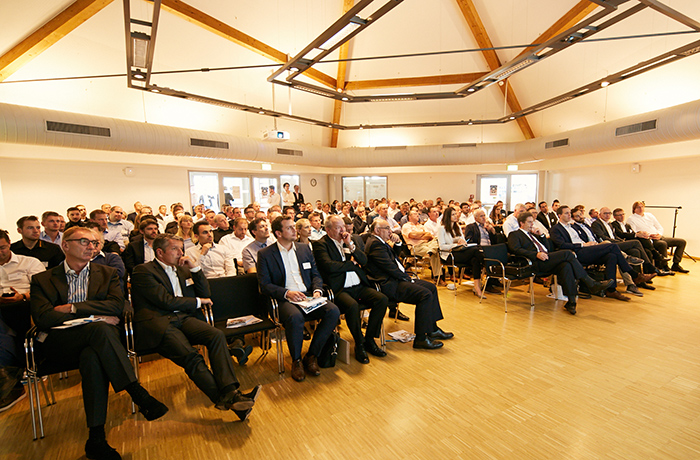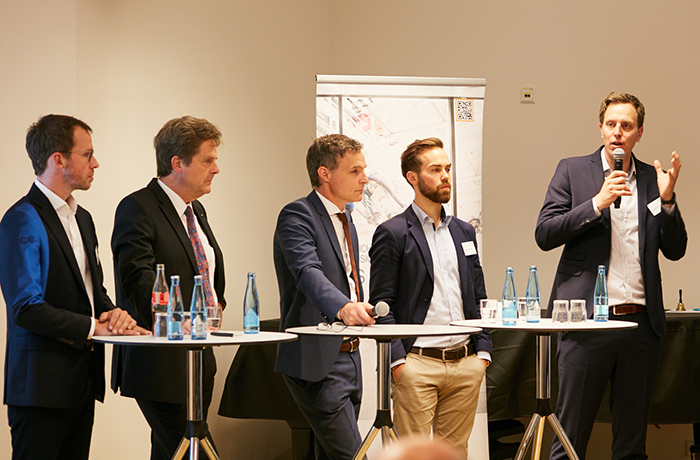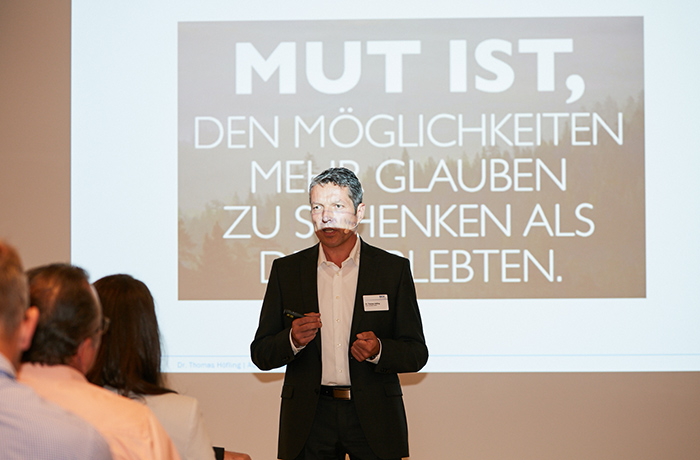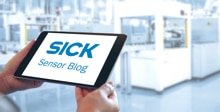We launched the SICK Automotive Days in 2009 with the aim of establishing a compact platform for specialist exchanges between automotive automation experts. The 10th SICK Automotive Days has shown us clearly that we have succeeded in this. About 110 participants from the automotive industry, the automotive supplier sector, various institutions, and the sciences took part in discussions with industry experts from SICK under the motto Propelling progress – solutions for tomorrow’s smart production.

The mix of topics in the presentations and discussion rounds was particularly successful this year. Participants praised the high level of the contributions. “The SICK Automotive Days are a hub for innovations and good conversations,” commented Thaddäus Kustra, Head of Au-tomation and Testing Technology at Volkswagen AG in Wolfsburg. And he should know. This was the tenth time that he had taken part in the Automotive Days.
Robot guidance and human-machine collaboration led the ranking of topics again this year. There were also presentations on, for example, modular assembly, flexible position determi-nation of vehicle bodies, and autonomous transport systems in intralogistics.
The potentials of digitally networked companies
Prof. Volker Stich, Managing Director of the Institute of Industrial Management (FIR) at RWTH Aachen University made a plea for digital transformation in his keynote speech, including mastering or reducing lag times. “We need to focus on the center of the action. We have to consider how to reduce lag times that add up – and this is where Industry 4.0 comes into play. The networking of sensors and systems – real-time capability can greatly assist us here. This is something that is motivating us in Aachen and that is meanwhile motivating all of us.”
The Managing Director of the FIR has also been in charge of the Smart Logistics Cluster on the RWTH Aachen Campus since 2010. FIR’s Smart Logistics Cluster has enabled a hitherto unique form of collaboration between representatives from research and industry

Anticipation and courage
Robert Bauer, Chairman of the Executive Board of SICK AG, sketched out the concept or objective of constructing production plants for products that have yet to be developed.

In his welcoming address Dr. Thomas Höfling, General Manager of SICK Vertriebs-GmbH, appealed for more courage than he has so far experienced regarding belief in the possibilities – an idea that led to further discussions among the participants. Dr. With their complex production processes, the automotive and supplier industries are more exciting and colorful than ever. They are currently being spurred on by topics such as cycle-independent production processes, digital aids, and material flow logistics on the Industry 4.0 level – to name but a few. These are expected to result in a sharp rise in productivity in the double-digit percentage range. Without innovative automation based on intelligent sensors, however, this aim will remain an illusion. And it is precisely here that SICK exploits its strategy of sensor intelligence

